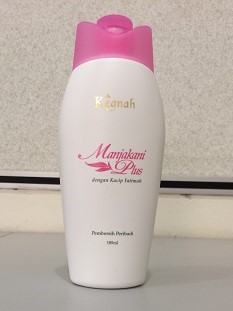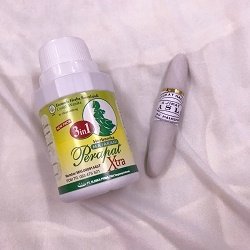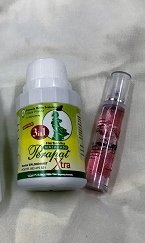Vaginal Hygiene
Just like overall hygiene for other parts of the body, proper vaginal hygiene requires our special attention. While women today spend a lot on their facial care, make-up and other grooming products, this very important intimate area is often neglected.
Like our digestive system, which contains
"friendly" gut bacteria, our vagina also has this "friendly"
bacteria which produces an acid known as lactic acid.
Not surprisingly, these "friendly" or good bacteria are considered guardians of the vagina and maintaining their optimum balance is the basics of good vaginal hygiene.
When this acidic environment is disturbed, there is an overgrowth of bad bacteria in the vagina. Such a condition easily leads to BV or candida that can cause itching, irritation, burning and foul odor.
Basic Vaginal Hygiene Factors
Menopause
Vaginal infections are more common among woman of menopausal age. This is due to the changing vaginal estrogen levels that occurs at pre-menopause or post menopause. Drop in estrogen levels causes the vaginal lining to be thinner and drier.
The vaginal walls become more delicate and are prone to tears and cracks making them more susceptible to an infection. Delicate vaginal tissues are also one of the main causes of vaginal burning during sex.
Clothing
Women who wear tight undergarments or jeans for prolonged periods have a higher risk of getting an infection. This is due to the increase in moisture levels which promote the growth of "unfriendly" bacteria.
Wear cotton panties or at least cotton crotch panties. The natural fibers absorb moisture in the crotch area and promote air circulation, thereby reducing vaginal sweating. If you have to wear pantyhose as part of your office attire, choose one that has a cotton crotch. Better still wear thigh-high panty hose instead.
Skip wearing panties when you sleep. Your vagina is being wrapped up in at least 2 layers of clothing most of the day. Give it a chance to breathe when you are resting.
But don't skip the panty or wear thongs if you are at the gym. Wear padded shorts. It gives your vagina an extra layer of cushioning against gym equipment.
Change out of wet or sweaty clothing as soon as possible. Moisture trapped in the vaginal and groin area encourages bacteria to thrive, leading to vaginal yeast infection, and smelly vaginal odor.
Menstrual Cycle
 Kacip Fatimah Wash
Kacip Fatimah WashIt is especially important to maintain good daily vaginal hygiene during menstruation to prevent irritation and foul vaginal odor. Change soiled sanitary napkins and tampons frequently. Wash the vaginal area with this kacip fatimah wash or wipe with unscented feminine wipes before putting on a fresh pad.
Panty liners are fantastic, but be aware that they keep moisture and odor in. So change them often. If you experience allergic reactions to them like vaginal itching, it is best to change brands or avoid using them.
Condom
Allergies to the rubber in condoms can disturb the natural acidic environment and increases the risk of vagina infections. Switching to polyurethane condoms can help to alleviate the problem. And always wash the vaginal area with a the kacip fatimah wash after sexual intercourse.
If you engage in rectal intercourse, always use a condom and remove it prior to vaginal intercourse. Never go from rectum to vagina sex without good hygiene first as this will increase your risk of infection.
Douching
Douching the vagina is not necessary as it is self-cleansing. In fact frequent douching with scented feminine hygiene products upsets the harmoniously balanced vaginal flora.
According to Women.webmd douching can actually increase the risk of infections such as bacterial vaginosis, causes pregnancy complications and other health problems.
Diet And Vaginal Hygiene
Eating a balanced diet with lots of fresh fruits and vegetables and yogurt every day is the easiest way to maintain optimum vaginal hygiene. Drink at least 8 glasses of plain water every day. Your vagina mucus require water to be well lubricated.
Try to limit your intake of white bread, white rice and sweetened beverages. Instead, eat more wholesome foods such as brown rice and whole meal bread. A change in dietary habits will not only help to maintain a healthy vagina but your overall health as well.
Eight Vaginal Hygiene Care Basics
- Bathe daily taking care to wash the vagina folds to remove gunk, urine and sweat with a pH balanced feminine wash. Gunk or smegma is a whitish, yellowish buildup between the labia folds.
- Trim pubic hair regularly as they trapped moisture and odor.
- Wipe the genital area with unscented tissue or feminine wipes after urinating. Doing so keep the vagina clean and dry and prevents vaginal itching and odor.
- Wipe from front to back after pooping (from back of vagina to anus).This reduce the risk of bacteria from the anus from entering the vagina.
- Do not point nozzle of hand-held shower head into the vagina as this might help to spread bacteria from the anus into the vagina.
- Avoid wearing thong underwear for long periods. The thong string at the butt cracks tracks bacteria from the rectum forward into the vagina.
- Avoid using fabric softeners. The harsh chemicals in them may cause itching and rashes.
- Use liquid detergent to wash underwear and wash them thoroughly to remove detergent residues.
Adopting the vaginal hygiene and health tips mentioned here can prevent a lot of vaginal health problems. Even the pain associated with an infected vaginal cyst can be better managed with proper vagina care.
Just because your vagina is out of sight it does not mean it should be out of mind too. Remember that paying attention to your vagina is something you owe yourself!
Back to top- Home
- Vaginal Hygiene



Facebook Comments
Thanks for visiting. Have your say on what you just read? Leave a comment in the box below!